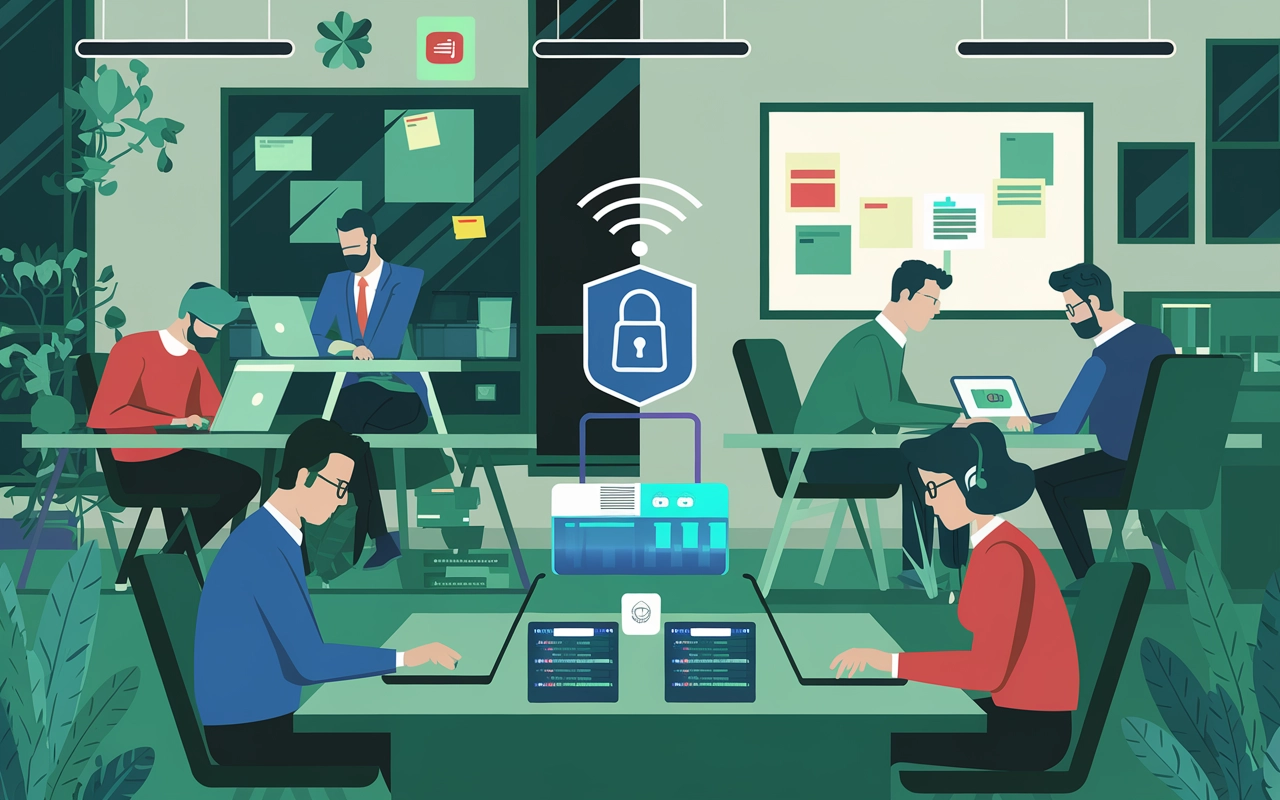Alternative to VPN: an overview of modern solutions for business

Modern enterprises face challenges that cannot always be solved by traditional VPN systems. Alternative solutions offer improved security, performance, and scalability needed to operate in remote access and cloud technologies.
New network security solutions: reasons for their emergence and options
The reason for the emergence and increased popularity of modern network security solutions are the problems of outdated VPNs:
- Excessive trust. Traditional VPN systems assume complete trust in all users, which creates security threats.
- Increased attack surface. IP addresses are not hidden and are accessible to the external Internet, so they can potentially be used by attackers.
- Performance issues. Rerouting traffic through data centers causes delays.
- Complexity of management. Conventional VPN technologies are difficult to scale and require significant operational costs to maintain.
Advantages of modern VPN alternatives
The transition from outdated technologies to more modern ones is always associated with the fact that new options in the current conditions offer much more benefits:
- Access policies for different types of devices. Modern VPN alternatives allow you to create and apply individual access policies for different types of devices, be they desktop computers, laptops, smartphones or tablets. This allows you to take into account the features of each device and ensure the most secure access.
- Checking the device status using multiple parameters. To increase the level of security, a multi-factor check of the device status is carried out. It includes checking the operating system, the level of security updates, the presence of antivirus software and other critical parameters that can affect security.
- Linking a device to a user for full control over permissions. Each device is linked to a specific user, their style of using the gadget, which reduces cyber risks to almost zero and optimizes access control.
- Geolocation and time binding. Modern systems limit permission to enter applications based on geographic location and time intervals. That is, entry is allowed only from certain places and at certain times, which significantly increases the level of security.
- Managing the identity of those entering the network and their privileges. Alternative VPN solutions organize effective user identity management, including assigning privileges and determining the right to log in for each incoming request.
- Continuous threat assessment to verify user identity. Modern systems continuously assess threats related to user access using various algorithms and behavior analysis methods. This allows for timely detection and prevention of potential security threats.
- Support for access to applications at various levels (L3, L4, L7). New generation solutions support access to applications at various levels of the network model, including the network (L3), transport (L4), and application (L7) levels. This feature ensures flexibility and secure access to various types of applications and services.
A striking example of alternative options: the Zero Trust model
The Zero Trust model uses two or more factors of authentication to organize security. It involves the use of several forms of identification to confirm the user's identity, which significantly reduces the threat of cyberattacks. The network is divided into isolated segments, each of which has its own access rules. This limits the movement of users and information within the network, reducing the risk of attack propagation and providing more precise access control.
Each access request is assessed based on various parameters, such as user identity, device status, geographic location, and user behavior. Access is granted only based on strict policies and rules. Full visibility into user and network activity in real time allows for timely detection and response to potential threats. This provides a proactive approach to security management and improves overall network protection.
Moving to modern VPN alternatives such as Zero Trust provides improved security and performance. These solutions help organizations effectively manage access to corporate resources, minimizing risks and improving user experience.
Private VPN Server: A Great Alternative to Regular VPNs
A private VPN server is also a great alternative to public VPNs. It allows users to control all aspects of their network security, providing a higher level of privacy and data protection.
You can learn more and buy a private VPN server on the Private VPN server. This resource also provides rental terms and conditions, payment methods, server geography, answers to frequently asked questions, and a lot of other useful information.